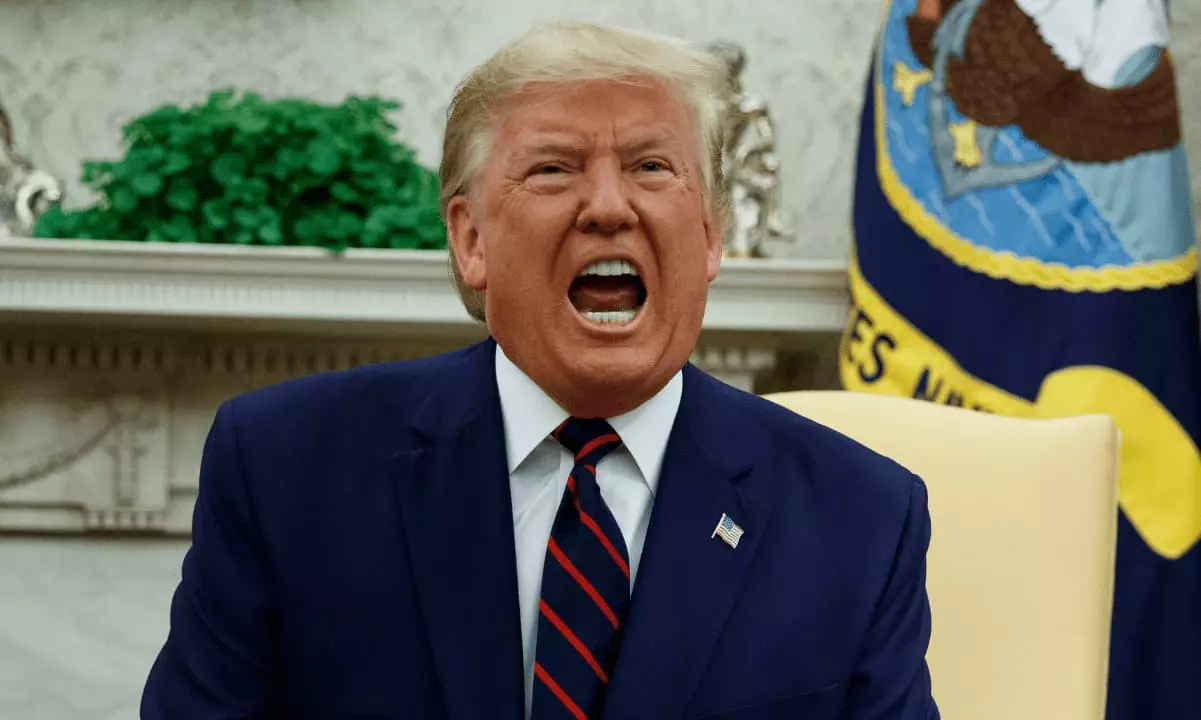In the explosive world of American politics, the intertwining of money and influence is a dance as old as democracy itself. One flashpoint that recently illuminated the murky waters of lobbying was a post by former President Donald Trump on his social media platform, Truth Social. What commenced as a seemingly innocuous endorsement of a “Crypto Strategic Reserve” swiftly morphed into a conflagration of political fallout, particularly for one of Washington’s power brokers—lobbyist Brian Ballard. The incident has raised critical questions about the ethical boundaries of lobbying and its ramifications on political relationships.
Ballard, whose firm had made notable strides in the sphere of lobbying, found his credibility challenged when it became evident that the crypto mention in Trump’s post was tied directly to his client, Ripple. This intertwining of interests, unnoticed by the President until later, not only caused a rift between him and Ballard but also tarnished the reputation of one of D.C.’s most prominent lobbyists. The speed at which the tide turned was remarkable, with Trump reportedly expressing his outrage and declaring that Ballard was “not welcome in anything anymore.” This intense reaction illustrates not only Trump’s dedication to his perceived loyalty but also the perilous nature of lobbyist influence.
The Anatomy of Trust in Political Alliances
In Trump’s administration, personal relationships often dictated political maneuvers. One of the most telling aspects of this upheaval was the realization that for Trump, even the slightest hint of betrayal—real or perceived—could result in immediate exile. This incident underscores a deeper truth: the intricate web of trust in a political context is fragile, particularly for those who operate in the backrooms of power. Trump’s allies began to question whether Ballard had overstepped by leveraging his connections for personal gain, which ultimately led to his professional isolation.
The narrative of betrayal digests more easily when one considers the substantial profits Ballard’s firm has harvested since Trump’s return to political prominence. With a sudden influx of new clients and a staggering increase in revenue, one could argue that Ballard’s fortunes flourished just as the relationship soured. Such a juxtaposition begs the question of ethics in lobbying: Is success built on merit, or is it often a reflection of those fruitful ties cultivated in Washington’s underbelly?
The Ripple Effect of Lobbying Practices
As the fallout from Ballard’s predicament continued to unfold, it became evident that many of his clients were devising alternative strategies to engage with Trump’s inner circle. This was emblematic of a larger issue in the lobbying arena: the reliance on past relationships may cultivate false confidence in one’s standing. Trump’s camp remains wary of those who, in their view, overly stress their connections—a misstep that often signals a fraught relationship.
Ballard has publicly dismissed these criticisms, albeit with a palpable tone of defensiveness. His assertion that he never exaggerated his relationships appears disingenuous in light of the mounting evidence of client flight. This contradiction exposes the core dilemma at play; when influence is the currency, maintaining credibility is paramount. How many clients can genuinely feel secure in a lobbyist’s ability to broker access, especially when the lobbyist himself might be seen as a liability?
The Double-Edged Sword of Influence Peddling
Within this narrative, the perception of influence peddling takes center stage. Ballard’s career trajectory—from a prominent political fundraiser to a technologically embroiled lobbyist—illustrates the complexities inherent in this line of work. While securing new customers may offer a veneer of success, it also cultivates an environment rife with scrutiny and suspicion. The people who inhabit these spaces become caricatures of influence, simplified to their relationship status rather than their actual contributions.
Critics of the lobbying industry often argue that it encapsulates the decay of democratic values through the undue influence of money and power. When the lines between action and intention blur, one must ask whether this industry serves the greater public interest or engenders a culture of favor-trading that ultimately undermines accountability. Each blunder, such as Ballard’s fumbled crypto endorsement, serves as both a case study and a warning—a reminder that the game of politics is unforgiving and that reputations, much like financial investments, can fluctuate dramatically in the blink of an eye.















